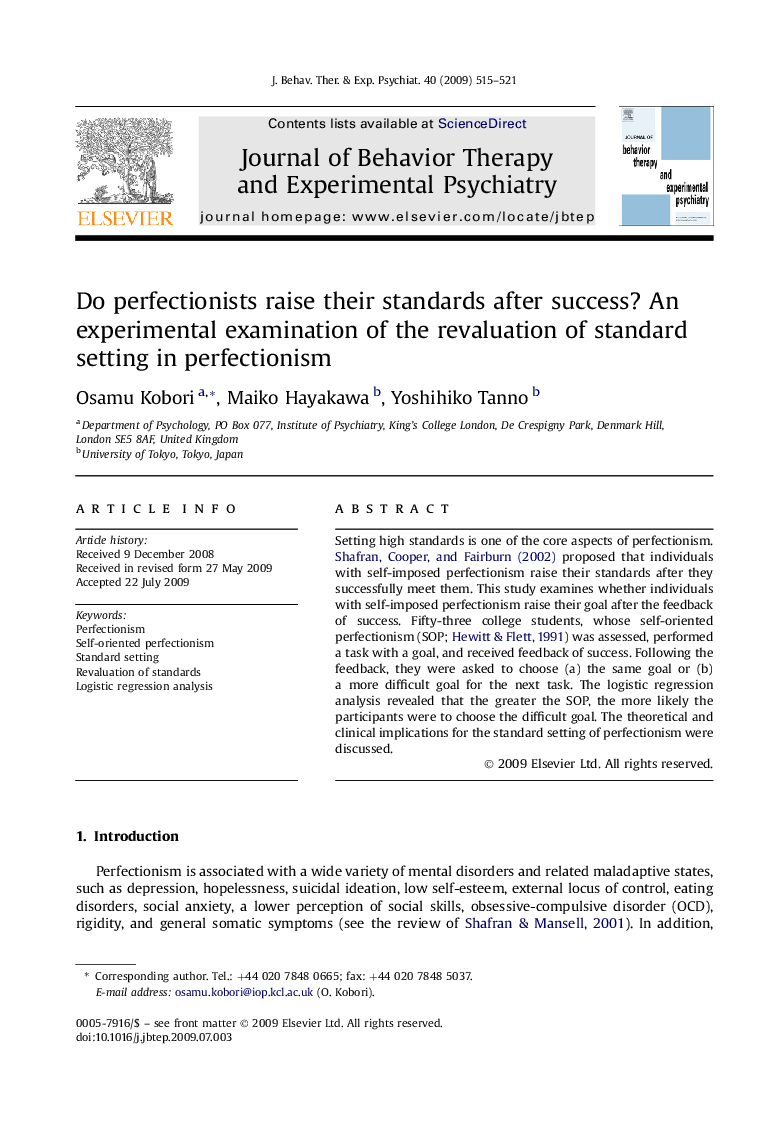| Article ID | Journal | Published Year | Pages | File Type |
|---|---|---|---|---|
| 7267879 | Journal of Behavior Therapy and Experimental Psychiatry | 2009 | 7 Pages |
Abstract
Setting high standards is one of the core aspects of perfectionism. Shafran, Cooper, and Fairburn (2002) proposed that individuals with self-imposed perfectionism raise their standards after they successfully meet them. This study examines whether individuals with self-imposed perfectionism raise their goal after the feedback of success. Fifty-three college students, whose self-oriented perfectionism (SOP; Hewitt & Flett, 1991) was assessed, performed a task with a goal, and received feedback of success. Following the feedback, they were asked to choose (a) the same goal or (b) a more difficult goal for the next task. The logistic regression analysis revealed that the greater the SOP, the more likely the participants were to choose the difficult goal. The theoretical and clinical implications for the standard setting of perfectionism were discussed.
Related Topics
Health Sciences
Medicine and Dentistry
Psychiatry and Mental Health
Authors
Osamu Kobori, Maiko Hayakawa, Yoshihiko Tanno,
